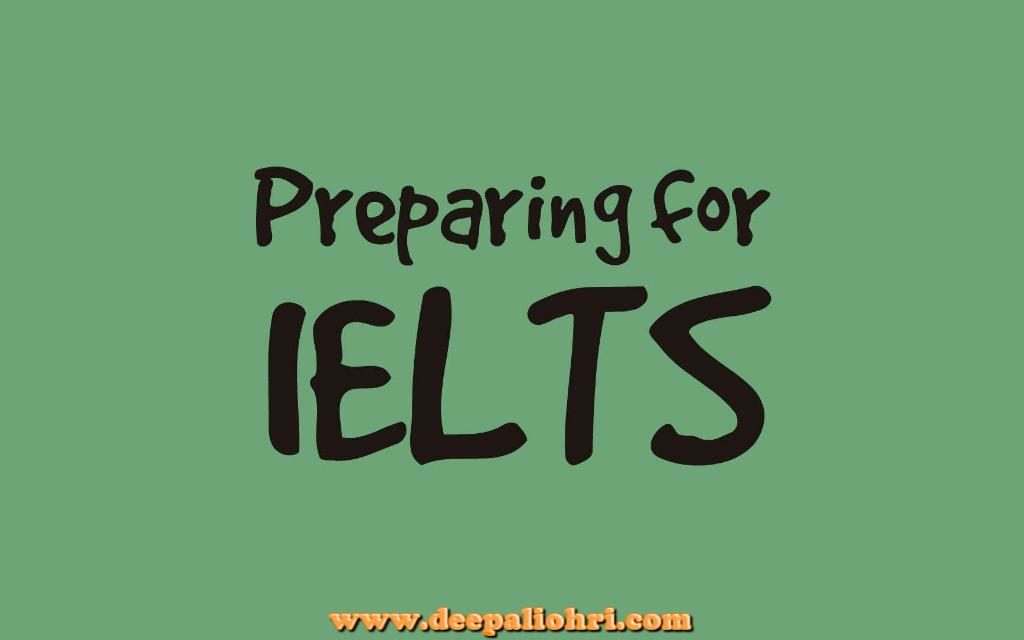Important Steps in preparing for your IELTS Tests…..contd…
As we have already discussed about the first three points of the important steps for your IELTS Test and you know now about the tests and its modules and have also worked on your goals. Now let’s move ahead and know the remaining steps for the preparation.
-
Know the requirement of your chosen band score.
As I told earlier, that listening and reading are very easy as a point system, but writing and speaking are different. In these two the examiner is looking for specific skills in your language. And you must know what examiner is exactly looking for, to get the desired band score that you require. So when you understand about the band score requirement, you tend to improve your language skills. I will be giving tips to understand band scores for writing and speaking in a separate lesson.
-
Learning the questions and developing the tips and techniques for each type
For listening and reading in IELTS there are over ten different types of questions that you can get in the test. It’s very important that you know the types of questions and how to solve them, before you enter the exam room. You will not have enough time during the test to understand the questions. Also, how to deal with each type of question is very crucial, not only in listening and reading but also for wiring task two i.e. Essay. IELTS essays are different from the normal school essays. Don’t waste your time learning from any essay book, or don’t get confused from the lot of information available online. It’s very important that you read or learn right types of questions for these essays in IELTS. Same is for speaking, you are going to have range of questions and it’s important for you to know which types of questions your examiner will ask you and how to deal with them.
-
Prepare for common topics and vocabulary
Now even if your level of English is at the right track, you still need to practise the common topics and increase your vocabulary. This is more important in speaking as you have to give your answers directly. If you have enough time, you can use various sources to develop your ideas like:
-
Practice tests: you need to do practice tests to assess your listening and reading.
For practise tests, there is a plenty of material online, but Cambridge IELTS books are the best to go through. Your speaking and writings needs to be assessed by an experienced teacher as its very difficult to assess at your own level. So you need to find a qualified teacher who can provide you with an accurate feedback. After getting your writing and speaking assessed, don’t just look for what band score you got, but also try to find out what are your weaknesses or strengths and also how your teacher has assessed your band score.
-
Development, Practice, Speed and Time management.
It’s impossible to keep one schedule for IELTS Practice, for all students. Every student has different strength and different weaknesses and also they have different amount of time available. The most important thing is that you do cover all aspects of the tests before your exam in the given frame of time. During your preparation for IELTS, you will need to spend some time building speed. Writing and reading have a very specific time limit. And it can be very difficult for the students to finish all the 40 questions in one hour or to write task one & task two in one hour. Building speed and learning to manage your own time is very important. And u should be practising doing that home, checking how long it takes you to write and how does it take you to skim and read the passage or to scan and find the answers.
-
Full practice tests under exam conditions
Some students do practise tests in order to just practise their skills or to find their band scores but they don’t do the full tests under exact exam conditions. So that means your listening, reading and writing all together which will take 2 hours 40 minutes. But I recommend to do practice test under full exam conditions, with no breaks and in the time span of 2 hours and 40 minutes. This will really give you an idea how difficult and tiring IELTS exam can be.
-
Get training and take your test when your English and IELTS Skills are the strongest.
Professional training for IELTS is the best. You can find a good school near you. You choose the school that really does know about IELTS , can support you and can understand your aims for IELTS. Don’t just choose any school which claims to be the best. Make sure you choose wisely. And if you can’t afford to go to an IELTS school, you can always look online for free training.
Now lastly, take your test when you are completely ready. Not all students can do this as some students have short time, but in case you have enough time then become an expert before taking an exam.
So these are the steps you should follow to prepare for your IELTS exam. I will be coming with more tips for the four parts of IELTS in my coming posts.
Till then All the Best!








